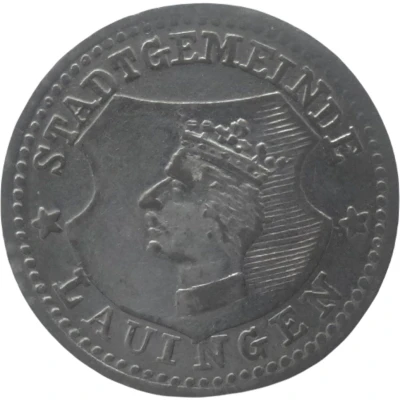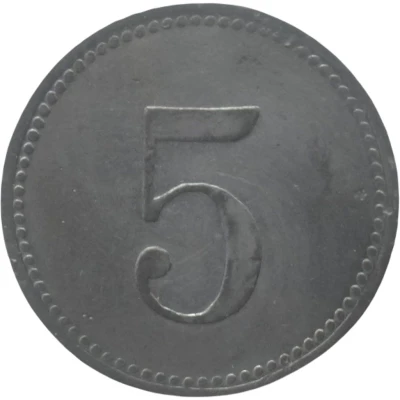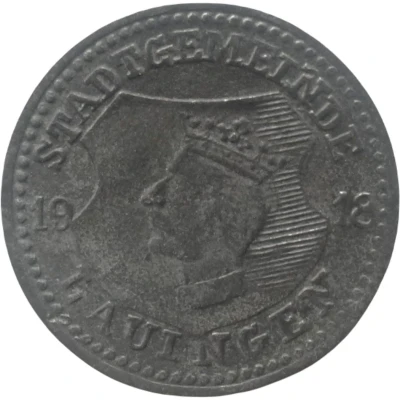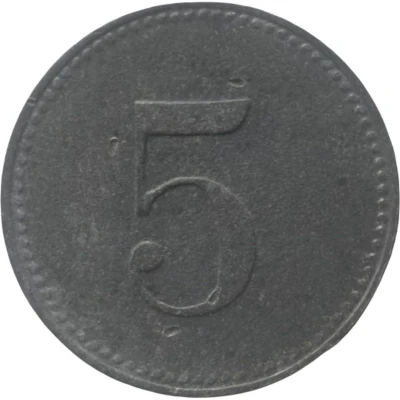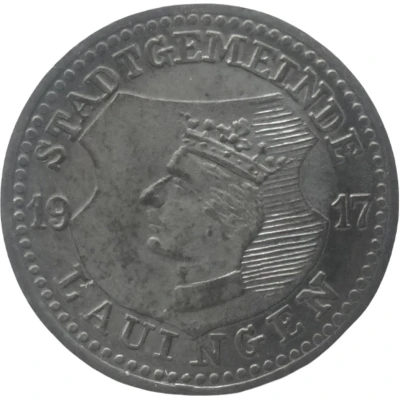
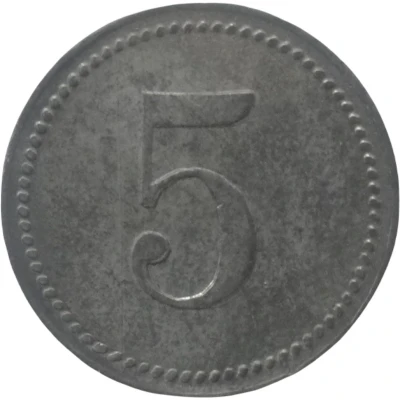

© Willem63 (CC BY-NC-SA)
5 Pfennigs - Lauingen
1917 year| Zinc | 1.4 g | 17.8 mm |
| Issuer | City of Lauingen (notgeld) (Federal state of Bavaria) |
|---|---|
| Emperor | William II (Wilhelm II) (1888-1918) |
| Type | Standard circulation coin |
| Year | 1917 |
| Value | 5 Pfennigs (5 Pfennige) (0.05) |
| Currency | Mark (1914-1924) |
| Composition | Zinc |
| Weight | 1.4 g |
| Diameter | 17.8 mm |
| Thickness | 0.9 mm |
| Shape | Round |
| Technique | Milled |
| Orientation | Medal alignment ↑↑ |
| Demonetized | Yes |
| Updated | 2024-10-04 |
| Numista | N#95143 |
|---|---|
| Rarity index | 89% |
Reverse
Pearled rim with denomination centered
Script: Latin
Lettering: 5
Edge
Plain
Comment
Issuing body: [Stadt, Bayern].Interesting fact
The 5 Pfennigs - Lauingen 1917 coin from the City of Lauingen (notgeld) in the Federal state of Bavaria, made of Zinc and weighing 1.4g, is interesting because it was issued during a time of economic crisis in Germany, specifically during the hyperinflation period of the 1920s. Notgeld, which translates to "emergency money," was issued by cities and towns as a temporary solution to the shortage of official currency. The coin's design, featuring the city's coat of arms and the denomination, was likely created by a local artist or designer. Despite its small denomination, the coin holds historical significance as a symbol of the economic challenges faced by Germany during that time.
